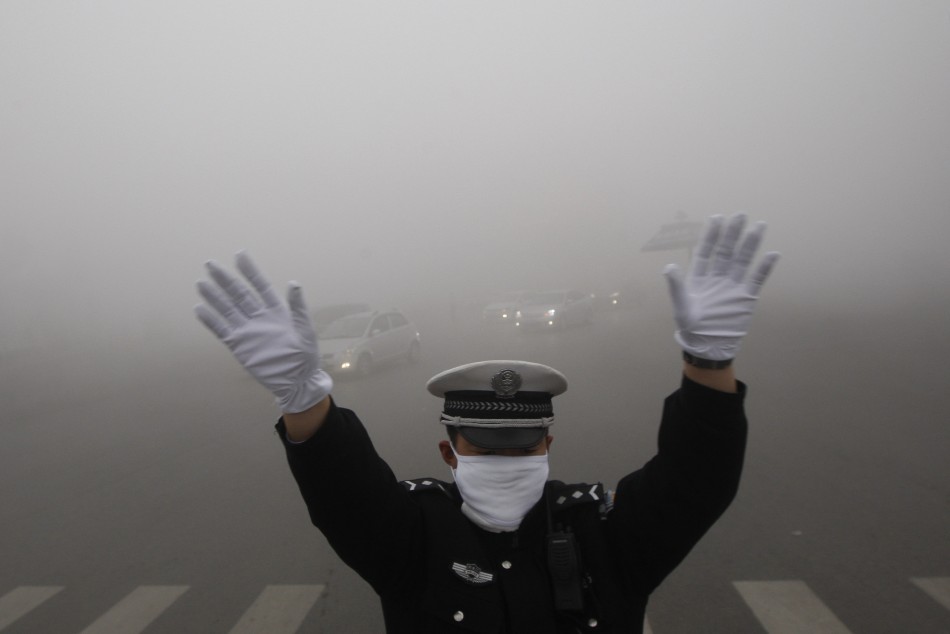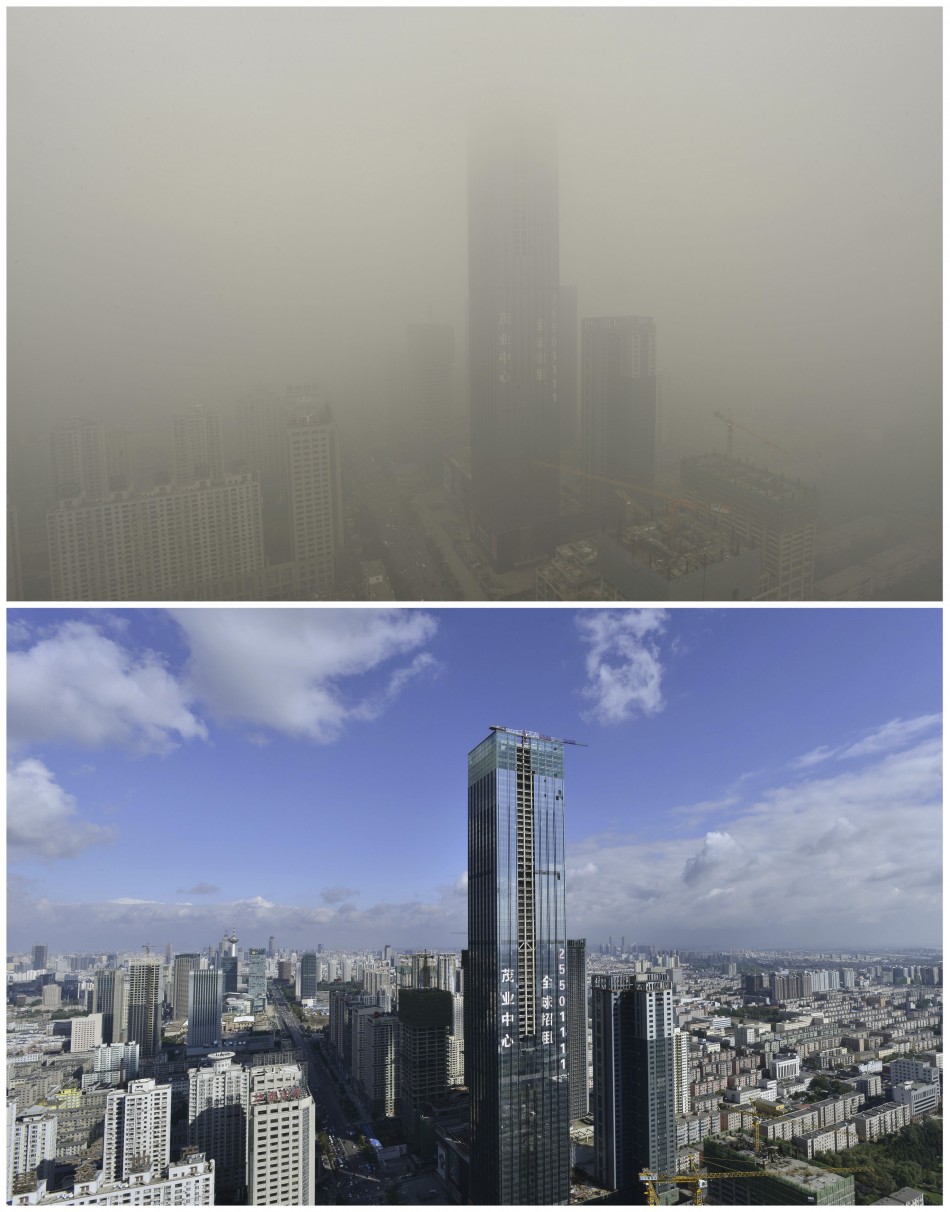China: Millions Choke as 'Super-Smog' Emergency Forces Harbin to Shut Down
Northern Chinese city Harbin under virtual shutdown in city-wide emergency
A 'super-smog' has caused one of China's largest northeastern cities to virtually shut down, forcing schools and highways to close and disrupting flights.
The density of airborne particles was at a record 40 times higher than international safety standards, and visibility reduced to less than 50m in parts of the city.
All primary and middle schools have been forced to suspend classes, highways have closed and some public bus routes have shut across the city, home to 11 million people. At least 40 flights have been cancelled or postponed on Monday morning.
Air quality indicators - the density of fine particulate matter, PM2.5 - was above 600 micrograms per cubic meter, with readings giving 1,000 in places. The World Health Organisation safe level guidelines state just 25 micrograms per cubic meter.
"After walking outdoors for a while, I felt it difficult to breathe," Chu Yushu, a resident in Harbin told official news agency Xinhua.
Shenyang city in Liaoning and Tangshan, 90 miles east of Beijing has also been affected.
Xinhua blamed the crisis on pollution from coal burning as the city turned on its municipal heating system for the first time this Sunday, as well as vehicle exhausts and farmers burning crop stalks.
Winter is typically high-smog season in northern China, as public heating systems are switched on for the cold weather and more homes start to burn coal.
China's major cities suffer from some of the world's worst smog. Following widespread public criticism, the Chinese government has pledged to address the country's pollution problem, but has made little progress.
Air pollution has been identified as a major cause of cancer and is being officially classified as carcinogenic to humans, The World Health Organisation's cancer agency said last Thursday.
The smog is expected to continue for another 24 hours.



© Copyright IBTimes 2024. All rights reserved.






















